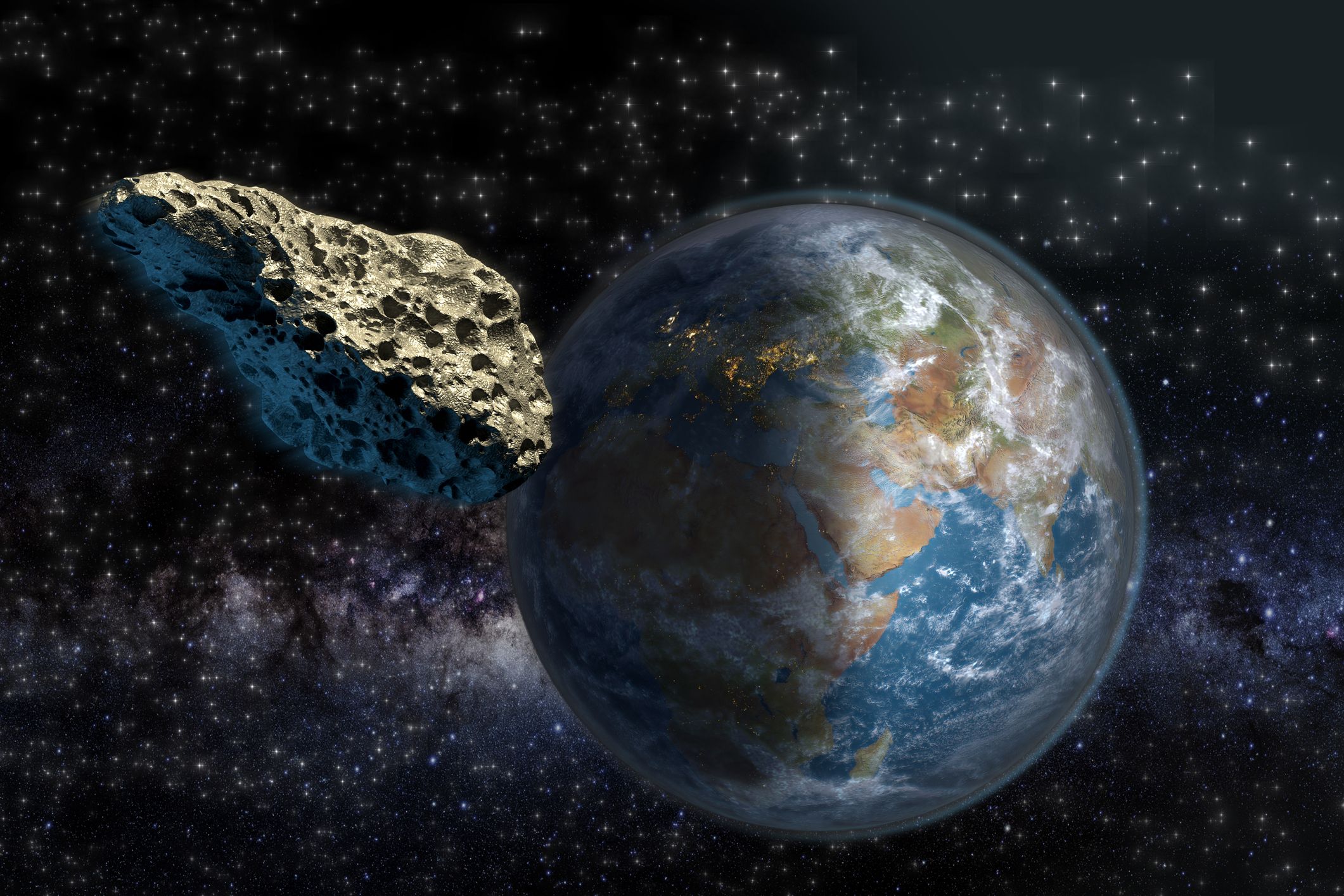
Two tiny asteroids sneaked safely past Earth last weekend, only to be discovered hours after they'd buzzed our planet. Asteroids 2018 NX and 2018 NW zipped past our blue-green orb at distances of just 72,000 miles and 76,000 miles, respectively. That's about one-third of the distance from the Earth to the moon.
Scientists think the asteroids both stretched between about 16 feet and 50 feet in diameter. That's relatively small for near-Earth asteroids.
Astronomers at an observatory on the Palomar Mountain range in California spotted both space rocks on Sunday, according to the International Astronomical Union's Minor Planet Center.
Although they passed our planet in quick succession, the space rocks aren't traveling as a pair. Asteroid 2018 NW raced toward our planet about five times faster than 2018 NX.
Even though astronomers didn't know they were headed toward our planet, these small asteroids didn't pose any risk to life because of their distance to Earth. They traveled relatively nearby but nowhere near close enough to penetrate our atmosphere.
Last month, however, a small asteroid did impact the gases swaddling our planet. Asteroid 2018 LA disintegrated in the atmosphere creating a fireball above Botswana, captured in the video below. Researchers found fragments of the rock in the country's Central Kalahari Game Reserve, EarthSky reported.
Although nearby asteroids usually pose no threat to our planet, space agencies like NASA are still working hard on strategies to protect us from any that do. In June, NASA announced its National Near-Earth Object Preparedness Strategy and Action Plan. As well as improving the tracking and modeling of asteroids, this plan aims to produce deflection technologies, foster international collaboration on planetary protection and establish emergency procedures in case of an impact.
In 2013, a meteor passed through the atmosphere above Russia, exploding over Chelyabinsk Oblast. Witnesses observed a bright fireball charging through the sky before shock waves from the blast shattered windows and damaged buildings. The meteor is thought to have indirectly caused nearly 1,500 injuries and damaged more than 7,000 structures.
Back in 1908, Russia experienced the largest impact event ever recorded on Earth. A meteor exploded with the energy of more than 1,000 Hiroshima atomic bombings above the country's Stony Tunguska River, NASA previously reported. The impact leveled trees 25 miles away; they lay flattened for decades.
Related: NASA wants to use nuclear weapons to deflect 1,600-foot space rock
Scary as that seems, densely populated areas make up such a small proportion of the Earth's surface that even large impacts like the Tunguska event are unlikely to take down cities and towns. A more pressing concern, NASA reported, are large water impacts that might create a tsunami.
NASA did not immediately respond to a request for comment.
Uncommon Knowledge
Newsweek is committed to challenging conventional wisdom and finding connections in the search for common ground.
Newsweek is committed to challenging conventional wisdom and finding connections in the search for common ground.
About the writer
Katherine Hignett is a reporter based in London. She currently covers current affairs, health and science. Prior to joining Newsweek ... Read more
To read how Newsweek uses AI as a newsroom tool, Click here.








